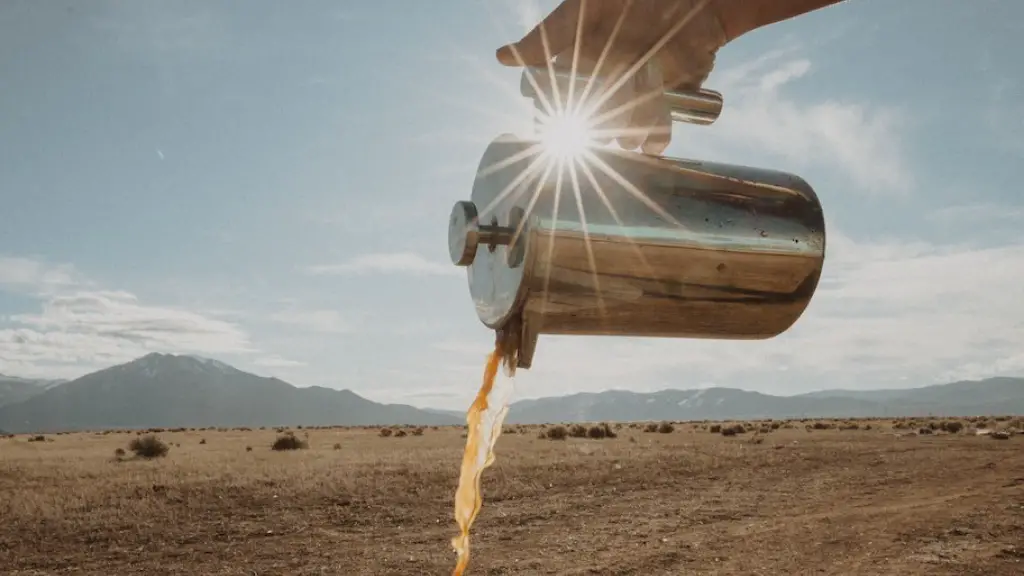The question of whether it is safe to consume both coffee and energy drinks is an important one when attempting to maintain a healthy and balanced lifestyle. Many people use coffee and energy drinks to boost energy and alertness, but both can have potentially negative effects, depending on the amount consumed. To understand if it is safe and beneficial to consume both, it is essential to consider the key differences and scientific studies into their effects.
Mentally, coffee and energy drinks have been known to have similar effects on alertness and energy. Both are thought to increase dopamine, a neurotransmitter associated with pleasure, and lower adenosine levels, which can be responsible for fatigue. However, there are significant differences found in the physical effects of the two beverages.
Coffee contains caffeine, which if consumed in excess can lead to heart palpitations and difficulty sleeping, as well as feeling of restlessness. However, it is generally seen as a safe beverage since it is naturally occurring.
In contrast, energy drinks often contain high doses of synthetic caffeine, as well as other artificial stimulants, such as guarana, taurine and ginseng. These are said to give a more intense energy boost than coffee, but the caffeine levels can be too high for some. Additionally, studies have found that consuming too many energy drinks can lead to potential health risks such as hypertension, heart palpitations and even coronary heart disease.
For those looking for a healthy balance between the two drinks, it is important to consider which one is best for them. Scientists recommend that those with underlying health issues such as hypertension or heart disease, it is best to stick to coffee as the caffeine levels are often lower and it is natural, whereas those looking for a more intense boost with fewer potential risks may consider energy drinks. It is also worth noting that those under the age of 18 should avoid both drinks altogether due to their still-developing bodies.
Ultimately, the decision to consume both coffee and energy drinks is a personal one, as the effects on individuals can vary significantly. It is essential to take into consideration any underlying health issues, lifestyle factors and age before making a decision. Consuming coffee and energy drinks in moderation has been deemed safe, however it is always best to discuss any concerns regarding the amount ingested with a doctor.
How Caffeine in Coffee and Energy Drinks Differs
The main difference between coffee and energy drinks is the type of caffeine in each beverage. Coffee naturally contains caffeine and has a lower level than its synthetic counterpart, which is why it can be consumed in higher quantities. In contrast, energy drinks typically contain higher levels of caffeine from synthetic sources, which is seen as more of a stimulant and may cause adverse reactions if consumed in excess.
Coffee also contains other natural antioxidants, such as polyphenols and flavonoids, which can be beneficial for health. In contrast, most energy drinks do not contain such beneficial nutrients, instead relying solely on caffeine for increased energy. This means that caffeine is the primary source of energy when consuming energy drinks, whereas consuming coffee also brings with it other benefits. This is why it is important to consider the type of caffeine in each beverage when making a decision.
Furthermore, the amount of caffeine can differ greatly between blends of coffee and types of energy drinks. Those looking for a more mild effect may opt for weaker coffee blends, or larger doses may result in a more intense response. Similarly, energy drink brands often contain different levels of caffeine, with some containing more than twice the caffeine content found in an average cup of coffee.
Impact on Long-term Health
In terms of long-term health effects, drinking coffee and energy drinks both have the potential to have adverse influences. Both drinks have been found to cause dehydration when consumed in high quantities due to the diuretic effect of caffeine. Studies have also found that coffee can increase levels of homocysteine, an amino acid which can lead to stroke and heart disease if present in high levels.
Additionally, an overly high intake of energy drinks can lead to additional health risks, due to the artificial additives such as sugar and other stimulants found in the drinks. High sugar levels in particular can impact tooth health and lead to diabetes, as well as increased anxiety and nervousness. Furthermore, ingesting too much caffeine from synthetic sources has been linked to fatigue and poor concentration, as well as insomnia and heart palpitations.
Overall, drinking both coffee and energy drinks in moderation can have health benefits, such as increased alertness and greater focus, but it is advisable to discuss consumption with a doctor prior to consumption if any concerns are present.
Finding a Balance
When it comes to finding a balance between coffee and energy drinks, it is essential to understand the benefits and risks of each beverage. Many people use both beverages, however it is always important to be aware of any potential health risks and to limit consumption to a healthy amount.
For those looking to consume both beverages, a good rule of thumb is to limit intake to two cups of coffee per day and no more than one energy drink. Furthermore, it is important to consider any underlying health issues one may have and read labels carefully, as caffeine levels can vary greatly between brands. Additionally, it is important to be aware of how much caffeine one is consuming, as excessive intake may lead to adverse side effects.
Overall, moderation is key when it comes to consuming both coffee and energy drinks. This can be beneficial when it comes to maintaining a healthy lifestyle, as a sensible balance can be beneficial in terms of alertness and general health.
Replacing Coffee and Energy Drinks with Alternatives
For some, the idea of replacing coffee and energy drinks with healthier alternatives may seem daunting. However, there are a number of drinks that can offer similar effects without the same potential levels of caffeine as coffee and energy drinks. These can include herbal teas, such as green tea or chamomile, as well as naturally occurring beverages such as coconut water or beet root juice.
Herbal teas in particular can be beneficial for those looking for a milder caffeine boost, as many natural teas contain theobromine, theoflavins and catechins, all of which are known for their energizing properties. Additionally, natural beverages such as coconut water are rich in electrolytes which can help to keep one hydrated and aid energy production. Beetroot juice is also a great option, as it contains high levels of nitrates, which can be beneficial in terms of energy levels, as well as promoting good cardiovascular health.
These are all great options for those looking to find a healthier alternative to coffee and energy drinks. Whilst these beverages may not provide the same level of alertness or energy boost as coffee and energy drinks, they are still beneficial in terms of providing electrolytes, antioxidants and other beneficial nutrients.
Social Affects of Coffee and Energy Drinks
It is important to bear in mind the social impacts that coffee and energy drinks can have on those around us. It is no secret that caffeine can cause a feeling of alertness and can bring about socialising and increased talkative behaviour. However, it is always important to remember that not everyone will react the same way to the same dose of caffeine, meaning that the effects may vary from person to person.
Furthermore, when using coffee and energy drinks to provide an extra boost of energy it is important to bear in mind the potential risks over a prolonged period of time. Caffeine has been found to cause an addiction-like response in some people, meaning that prolonged use can result in reliance and an inability to function without its presence. Therefore, it is essential to be aware of our own intake and to check in regularly with friends and colleagues to ensure that its usage remains healthy.
Additionally, caffeine poisoning should also be taken into account. This is when the caffeine content in either coffee or energy drinks is too high and the body is unable to process it. Symptoms include nausea, rapid heart rate and vomiting, and therefore it is important to be aware of the effects and to ensure that no one is consuming too much caffeine.
Knowing Our Limit
Overall, it is clear that both coffee and energy drinks can provide us with an increased level of energy and alertness. However, it is important to be aware of the potential risks that both may bring, and to ensure that we remain in control of our own consumption. The key is moderation, as well as understanding our bodies and their individual reactions to any caffeine. Furthermore, it is beneficial to consider alternative drinks which can provide the same energy boost with fewer risks.
Ultimately, it is important to remain aware of our own intake of coffee and energy drinks, particularly when it comes to our long term health. Therefore, it is advised to check in with our own limits on a regular basis and to ensure that we remain in control. This way, we can ensure that we are consuming both beverages safely and responsibly.





